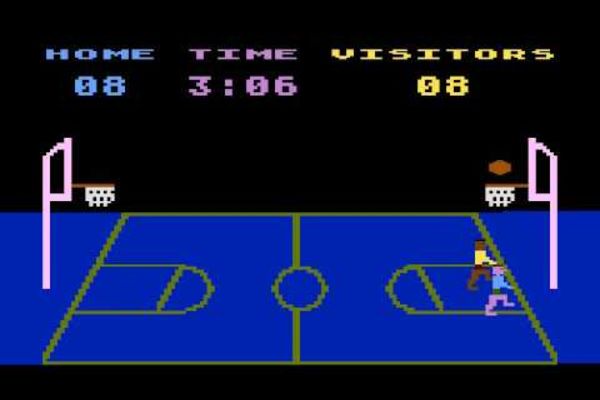Video Game host star MC Malik Forte believes Fortnite’s dance appropriate lawsuit reveals the biggest issue in video games today.
Fortnite has not only been in the news for breaking records over the past few weeks, but also for lawsuits and claims of digitally appropriating Black culture. While the video game industry is a billion dollar business, there still seems to be a disconnect when culture, race and money intersect. That’s why a community manager is important for growth and establishing deeper ties between video game products and its prospective audiences.
I spoke with Malik Forte, video game host (Overwatch, ELeague, and more), about this disconnect between cultures and the gaming community and what he considers the deeper issue.
1) What’s the biggest problem in this Fortnite lawsuit situation?
Dismissiveness. I whole-heartedly believe that’s where the problem begins. When folks don’t care about the culture or the communities responsible for ideas or the fact that said ideas have been siphoned. And when the people outside of the corporation are appropriating, that’s dismissive as well. It’s even more problematic because that’s ultimately seen as a cosign from the public to do so. It’s sad to see this happen. And video games are most successful when they have strong, loyal communities– that’s why the position of Community Manager is so essential.
You should empower people who brought ideas to the table in the first place if you’re going to build a community of things created in the Black community. It’s a very dismissive and bland corporate approach that I believe needs to be addressed sooner rather than later. Because this video isn’t cool in my opinion.
[Writer’s Note: Recently this video went viral on a separate tweet, even now people have mixed views on the use of dances within the game and in this video. Due to some vulgar words, we could not post the original tweet.]
— Erin Ashley Simon (@erinasimon) January 3, 2019
2) Where do you think this dismissive behavior starts? With the game developers or elsewhere?
It starts with society in general and the lack of us holding appropriators and vultures accountable. Look at all of the wonderful things people of color have done in this country that have gone overlooked and uncredited. Things like Jazz, Rock Music, and lately Hip-Hop. Corporations and investors are going to do whatever to make money, that’s just their nature.
I’m sure in the case of Fortnite, the idea to add these dances probably came from a person of color within their ranks or someone who is actually tapped into the culture. Then someone above them then took it and ran with it. The only issue is that they were messy about implementing these dances. They haven’t apologized or said one word about it and they’re just cashing in checks.
The lack of transparency makes this whole thing seem shady, which is why we’re seeing lawsuits. Don’t get me wrong, I think it’s great that Black culture can be embraced by everyone and has influenced US culture as a whole so much. That’s what makes this country great. But everyone should be able to benefit from their contributions, period. We need to solve problems like this while it’s still early.
3) Has the gaming community been receptive to people who see a problem with this Fortnite dance case? More so than those on the outside?
Simply put, no. The majority of the gaming community has either ignored this issue or spoken out in defense of Epic Games. Perhaps it’s tough for many because Epic is a good company with good people.
I personally have several friends that work there. I know a lot of people enjoy the game and let that outweigh the fact that what they’re doing is foul. And with how hive-minded gaming tends to be, a lot of those people’s fanbases typically follow suit.
The opinion I and most gamers from the hip-hop community have on this is not a popular one in the gaming space. That shows you how undervalued our opinions really are. Which is strange considering the appropriation, because again, this doesn’t happen without hip-hop.
4) The Black gamers that you’ve spoken with, who aren’t within the hip-hop space, do they feel similar sentiments?
Yes. The ones I’ve spoken with have definitely voiced displeasure because this is something they’ve seen outside of hip-hop as well. I think most people outside of video games and hip-hop that I’ve made aware of this agreed that a collaboration would’ve been better. In the gaming community, principles aren’t as abundant. Mainly because all of the young and impressionable minds out there haven’t developed as such yet.
5) What do you think would be the first step towards fixing this overall issue?
I think having the gaming community be more open to having this dialogue. Even if they don’t necessarily agree with it. Right now there’s a lot of this: “You can’t copyright a dance” and of course that’s obvious. But it’s side-stepping the true issue. Maybe some of the industry thought leaders can get together and have a discussion in a townhall format.
But, if there is no opportunity, folks who do stand for principles that reflect fairness and compensation for all should cold turkey drop the game. I was one of the first people championing Fortnite but dropped it after finding out none of the people were contacted for their creations. And of course, it was directly monetized by Epic Games in Fortnite. Easier said than done.
Ultimately, I wish some of my colleagues spoke up. A lot of them are worried about rocking the boat with Epic because they want to work with them in some capacity. But for those who care about authenticity and culture, I’d hope they speak up. There’s got to be some accountability from Epic.


